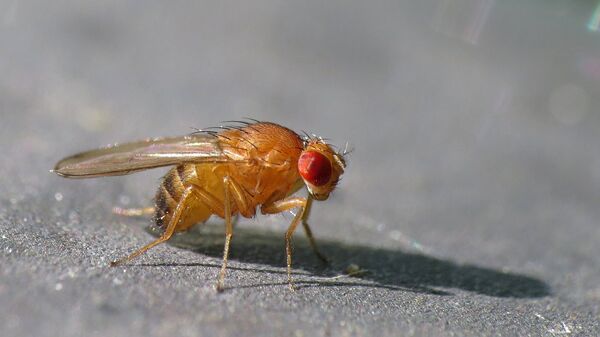OXFORD, 13 August (RIA Novosti), Mark Hirst – The environmental risks of releasing genetically-engineered fruit flies into the wild are far less than the risks associated with the use of pesticides, a leading UK biologist told RIA Novosti.
“The environmental risks are far fewer than the existing use of insecticides which persist in the soil and cause large scale collateral damage to other non-pest insects,” a professor with the University of East Anglia Philip Leftwich told RIA Novosti.
Leftwich has published a new study that found releasing genetically modified fruit flies would be more cost effective and environmentally friendly than convention pesticide use.
The Mediterranean fruit fly is regarded as a major farming pest and can cause extensive damage to more than 300 types of crops and agricultural produce.
Leftwich’s study found that releasing the GM flies encouraged non-viable insemination of the female flies, which do the most damage to crops, and that ultimately reduced their numbers.
“The genetically engineered flies are not sterile, but they are only capable of producing male offspring after mating with local pest females - which rapidly reduces the number of crop-damaging females in the population,” Leftwich said.
“The next step in the medfly plan is to apply for open-field trials with the Brazilian Government,” Leftwich told RIA Novosti, but the scientist added a final decision was yet to be agreed with the Brazilian authorities.
Leftwich and his research colleagues’ study involved recreating a secure wild environment within an eight-meter greenhouse at the University of Crete. After the release of the GM flies the population reduced dramatically.
The scientists have been working with Oxford Insect Technologies (Oxitec) and say the technique used with the fruit fly, which uses irradiation to ‘sterilize” the male population, could be used to target other species which are also regarded as agricultural pests.



